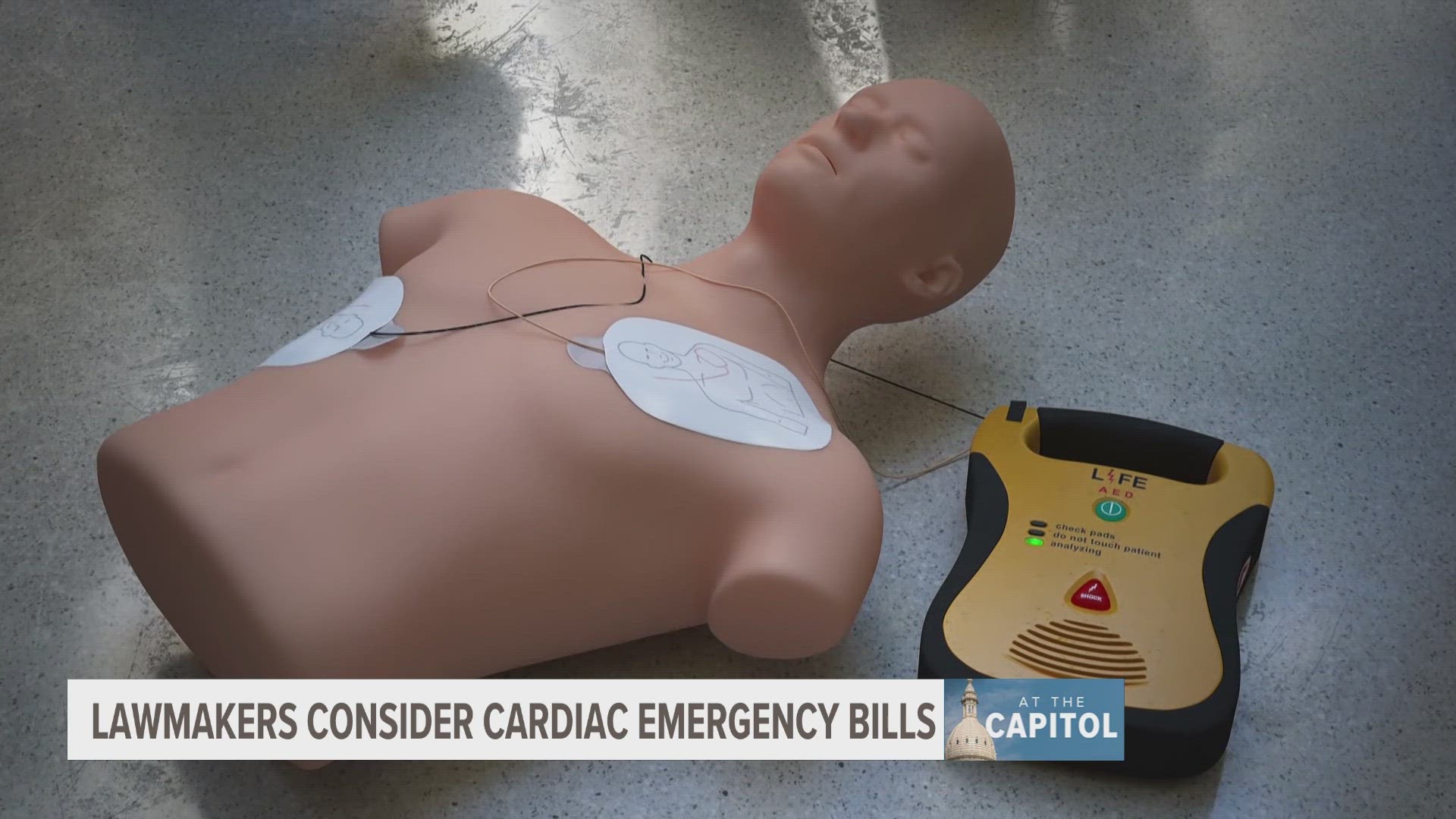LANSING, Mich. — "December 15 2022, my life changed forever," Michigan State University freshman Alex Bowerson said Tuesday as he recounted for lawmakers on the House Regulatory Reform Committee his experience of a sudden cardiac emergency while still in high school.
"It was another normal day at wrestling practice, put on my shoes, get ready to run," Bowerson recalled. "I was running for about two minutes. I got a tight pain in my chest and hit the floor probably about 15 seconds later."
He told them he would not have come out alive, if not for a nurse's quick actions and an automatic external defibrillator (AED).
"I was only in a terrible rhythm for about two minutes before the AED shocked me, and it led to an incredible outcome," Bowerson said. "And I would not be alive today if it was not for this AED and for someone who knew what to do."
Bowerson testified alongside others in support of House Bills 5527 and 5528, aimed at strengthening public schools' plans for cardiac emergencies and providing clearer guidelines on the placement of AEDs.
"Specifically, my bill would require an automated external defibrillator to be accessible within one to three minutes of a cardiac emergency, which is determined through data and best practices," HB 5527's sponsor, Rep. John Fitzgerald (D-Wyoming), said.
While the state already has requirements for schools to have cardiac emergency response teams, these bills aim to go further.
They would lay out more specific guidelines for placing AEDs in schools, training school staff and requiring that all athletic coaches in high schools be CPR and AED-certified.
"Schools don't have clear guidelines," said Cindie DeWolf, a mission advancement advisor with the American Heart Association. "So, this bill will help set those up and give schools a roadmap on how to implement these safety measures."
But even on issues where there may be broader support, early draft bills often come with questions and revision suggestions from lawmakers.
"I'm just not sure how a school would know what one to three minutes means," Rep. Graham Filler (R-St. Johns) said. "Are there people in the hall? Is it a certain time of day that would change that? And I think that opens up schools up for lawsuits. So, that's something I would worry about and just really encourage you to work on that going forward."
Fitzgerald also mentioned the hope of private philanthropy helping to pay for AEDs.
However, in its current form, his bill states that schools won't have to comply with the new requirements unless the legislature provides enough funding for them to do so.
To such questions, he responded saying there was still time to fine-tune the legislation.
"I think that some of those details are gonna be ironed out in the substitute," Fitzgerald said. "But, we're working hard to make sure that we're prioritizing the health and well being of our student athletes."
The bills will still need to be approved by the committee before they may be sent to the full House for a vote.
►Make it easy to keep up to date with more stories like this. Download the 13 ON YOUR SIDE app now.
Have a news tip? Email news@13onyourside.com, visit our Facebook page or Twitter. Subscribe to our YouTube channel.
Watch 13 ON YOUR SIDE for free on Roku, Amazon Fire TV Stick, Apple TV and on your phone.

